The crisis is a conscious strategy for social demolition - Interview with Boaventura de Sousa Santosis
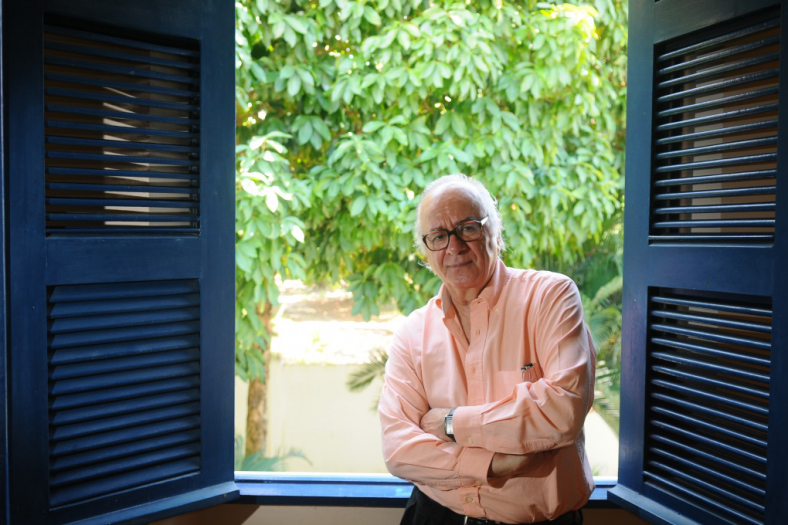 The world today is facing a deep crisis. Yet at the same time, the neo liberal growth model is still presented as the only possible option. The Portuguese sociologist Boaventura de Sousa Santos exposes the myth and made it his life’s mission to build an epistemology of alternatives. "It’s time to open the doors and windows of our universities and let the wind of alternative knowledge blow through", says de Sousa.
The world today is facing a deep crisis. Yet at the same time, the neo liberal growth model is still presented as the only possible option. The Portuguese sociologist Boaventura de Sousa Santos exposes the myth and made it his life’s mission to build an epistemology of alternatives. "It’s time to open the doors and windows of our universities and let the wind of alternative knowledge blow through", says de Sousa.
Boaventura de Sousa Santosis is a monument in the social sciences. He is head of department of Sociology at the University of Coimbra, Portugal, but spends most of the year abroad, discovering new worlds. From August to December he travels through the US and Latin America, the other half of the year he crosses through Europe.
He is one of the founders of the World Social Forum and collaborates on the progressive platform Transform Europe. He closely monitors the crises in Southern Europe, especially Greece.
MO* met de Sousa for an interview, following a lecture he gave at the University of Louvain La Neuve.
Why is this current crisis different from any past crisis?
Boaventura de Sousa: Because this crisis has taken on such an all-encompassing and permanent character and has become the explanation for anything that is wrong: salaries are restricted, because it’s a crisis. Pensions go down, because it’s a crisis. Health care is privatised, because we are in a crisis.
The entire social-democracy of Europe is being thinned out in name of this crisis. A crisis which is presented as a debt crisis of sovereign states but which is in fact a financial crisis of a kleptocratic and criminal system. This is a crisis caused by deregulated financial capital that speculates on the misery of the people. The more countries go bankrupt, the richer this system gets.
The consequences are not just about numbers, but about people: people are losing their jobs, their homes, their will to live.
The entire social-democracy of Europe is being thinned out in name of this crisis.
The crisis is social, but also political.
Boaventura de Sousa: I see seven big threats, which at the same time are challenges to turn this trend around.
The first threat is the disorganisation of the state. The state is an institute which should provide security and protection. These rights were gained through tough social battles by the people and the working classes. These rights provided access to goods, education, health care and support in unemployment.
In the 19th and 20th century, workers couldn’t buy the products they themselves had produced. They had no work contracts and their future was extremely insecure. After WWII the social democracy shaped, which still survives today in a couple of countries such as Belgium, but which is going through a severe crisis in many other countries. Social-democratic parties still exist in southern Europe, but there is no longer a social-democratic collective context.
The collective social context leans much more towards parties on the right side of the political spectrum. Whilst in the past the state has plenty of non-mercantile relations with its citizens, these have been strongly diminished today. Everything gets privatised and needs to adhere to the logic of the markets. This is a very real threat, as there is no alternative for this concept of the state.
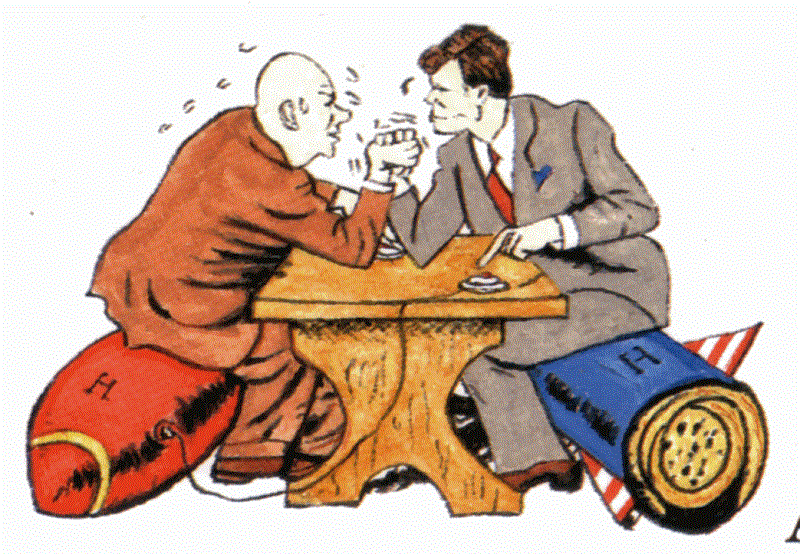 The second threat is the destabilisation of democracy. After WWII, a tension between democracy and capitalism developed. As long as there was a climate in which financial capital was regulated and the state provided public services, social democracy could flourish.
The second threat is the destabilisation of democracy. After WWII, a tension between democracy and capitalism developed. As long as there was a climate in which financial capital was regulated and the state provided public services, social democracy could flourish.
But the pact between democracy and capitalism has been destroyed since the fall of the Wall. Today, capitalism is unrestrained and showing its true, destructive face: it destroys the rights of people, their future, nature. All this for the sole goal of increasing profits.
The pact between democracy and capitalism has been destroyed since the fall of the Wall.
The only things capitalism has to fear is itself, its own destructive logic. In today’s politics, everything is for sale and lobby groups are pressurising democracy. I believe this signals the end of democracy as we know it.
The third threat is commoditising knowledge. Knowledge has to deliver a profit. Universities invest much more in biotechnology than in humanities because the return on investment is much higher. But the impact on society of this evolution is hard to grasp. The European program Horizon 2020 is a perfect example of the dominance of technology.
The fourth threat is the destruction of nature. Capitalism is pushing new boundaries and is playing with the capacity of nature. Frequently we witness the immense pressure nature is under expressed in extreme natural disasters. And there too, we see inequality play its role: the US has money to repair the damage after hurricane Katrina, Bangladesh has no money to protect its citizens. Destruction of nature means destruction of the means of living of numerous people in rural areas, adding to the pressure they already face by megaprojects such as large dams and deforestation. They are driven off their lands by force.
The fifth threat is the devaluation of labour. In European societies, labour was the instrument to gain access to citizenship. Through their labour, people got rights and could professionalise. Today work – as an instrument to civil rights – has been completely eroded. Work becomes precarious and unions are further deconstructed.
70 percent of the global economy is informal and the gap between paid and unpaid work is widening. A young graduate who spends hours, days and nights writing CV’s and preparing interviews, is accumulating unpaid work. All those hours spent on your way to work stuck in traffic, is unpaid work. You’re not working 8 hours a day, but 12 or 14 hours.
The sixth threat is criminalisation of social protest. Governments are decreeing more and more laws prohibiting people to go out on the streets, even for peaceful protests. In Latin America, governments are using anti-terror laws to block protests of indigenous people against the invasion of their lands by multinationals.
70 percent of the global economy is informal and the gap between paid and unpaid work is widening.
The seventh threat is the colonisation of minds, of everything that is different. Racism has taken on a new shape today. A cognitive type of racism is growing, not based on the colour of your skin, but based on your beliefs. Islamophobia is such racism. Racism is usually a reaction against someone seen as inferior or as dangerous. Most likely both.
This presents a far-reaching, dark reality. What can we do in such a situation?
Boaventura de Sousa: the situation we are in today seems indeed so dark that we cannot afford to just sit and take it. We cannot let this happen.
All the threats and criticisms I laid out here, they all sprout from a different vision, a vision laterally against the hegemonic discourse. These are all topics put on the agenda by social movements and groups that have been excluded by the dominant model.
Plenty of forms of resistance have risen against this system, but the media is paying very little attention to them. It is like a “sociology of the absent”, one big black hole. Locally, people are often working on alternatives, but as they get no visibility, it seems there are none. This has led to a weakening or a fatigue of the alternatives, just consider what the World Social Forum used to be.
What solution does offer a different perspective?
Boaventura de Sousa: I do not think you can find a solution for this cluster of problems through direct politics. It is not suited to deal with these sort of issues.
We have to develop a new sort of knowledge, a knowledge starting on the principle of dignity. A knowledge which lives outside of universities and research institutions.
Research institutions have become so standardised that the same material is being taught everywhere, while universities were originally designed to develop a unique future for your country. You can’t imagine Mexico without the Autonomous University of Mexico City (UNAM) or Brazil without the University of Sāo Paulo. But neoliberalism isn’t interested in such projects.
We have to develop a new sort of knowledge, a knowledge starting on the principle of dignity.
In Coimbra, we try to establish alliances to build a knowledge centre that includes the epistemology itself, to give people of these movements and organisations a platform. We don’t only need alternatives, we also need an alternative way to think about alternatives. We need to look through a new pair of glasses.
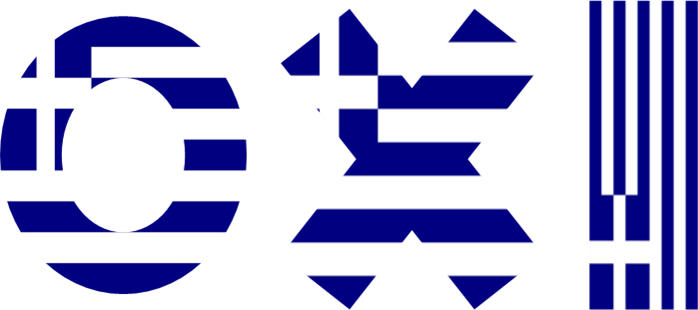 The way the Greek crisis is dealt with shows very little creativity. It is dominated by a very one-sided market orientated vision.
The way the Greek crisis is dealt with shows very little creativity. It is dominated by a very one-sided market orientated vision.
Boaventura de Sousa: Absolutely. Together with people from Greece, I am currently exploring the options to establish a Mediterranean block, to which Tunisia should also belong in my opinion, to formulate an alternative to this one-sided European policy. If we don’t do that, other countries will go down the same road as Greece.
Neoliberalism does not leave room for social policies. Reports published by some major companies have publicly stated that the most lucrative markets of the future will be in health care and education. Privatisation will march on and it always starts with the weakest, in this case Greece, but the trend will undoubtedly spread toward France, Germany and other countries in North Europe. I was at the Transform Europe Forum in Denmark. People there were very concerned about the savings in public healthcare. This provoked crisis is completely engulfing Europe.
Are European politicians aware of this?
Boaventura de Sousa: Most of them know exactly what they are doing. Barroso was very aware of the line he was defending, as was Junker. And they will be rewarded for dutifully defending this line of thought. The US is using Europe to implement this model. The treaty of Maastricht has sealed that pact. The European Central bank is under control of financial capital. Big names such as Mario Monti, Mario Draghi and Victor Halberstadt all come from Goldman Sachs.
Neoliberalism does not leave room for social policies.
The crisis is a conscious strategy to destroy social policies, starting with the weakest country. The problem is that Greece’s debt today is larger than it was when the crisis started. If Europe really were a political and economic union, the Greek problem wouldn’t exist. Greece only represents 2% of the euro economy. If the Greek crisis had been taken on as our mutual problem, there wouldn’t be a problem. But Germany wants to save its banks, especially Deutsche Bank, which earlier had been lending money to Portugal, Spain and Greece to purchase German cars: Mercedes, VW, Audi.
With this Greek crisis, an old ghost is resurrecting in Europe, the ghost of colonialism of the North towards the South. I believe we have seen the end of the European Union as we used to know it. We either have to rethink Europe, or it will fall apart.
Without a European Union, we mean nothing in the world of today.
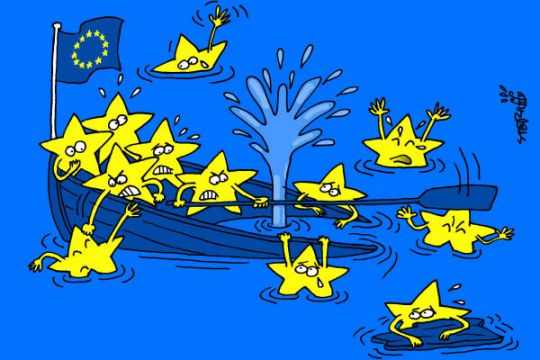 Boaventura de Sousa: Europe has long been seen as a symbol of hope, an example of living together in unity, a single currency, a passport. These are very specific, tangible benefits to citizens. But that same Europe has also become a strict guardian, who is causing a social collapse in certain countries. Instead of a source of wellbeing, it is becoming a source a malaise and that is dangerous.
Boaventura de Sousa: Europe has long been seen as a symbol of hope, an example of living together in unity, a single currency, a passport. These are very specific, tangible benefits to citizens. But that same Europe has also become a strict guardian, who is causing a social collapse in certain countries. Instead of a source of wellbeing, it is becoming a source a malaise and that is dangerous.
The North South axis running through Europe is our abyssal line, the schism which divides the world in metropolitan societies and colonial societies. In my book “Essay against Self-Flagellation”, I describe this phenomena in Portugal. When things are bad, the Portuguese always believe it is their own fault. Greece, Italy, Spain, we are still being treated as if we are some protectorate.
Hasn’t globalisation finally lifted that dividing line? We are living in a multipolar society, are we not?
Boaventura de Sousa: that divide is still standing, even in full globalisation. It is gaining power. There are two globalisation movements and the abyssal line divides the two: the world of grassroots and of excluded people and the world of big capital. Of the World Economic Forum in Davos and the World Social Forum.
For many different reasons this countermovement which we had built up from the bottom, has lost much of its power the past few years. The financial crisis and anti-terror legislation helped a great deal in this. These laws make it nearly impossible to have people from the Middle East coming over to the next World Social Forum in Quebec. Another reason is that the progressive movements in Latin America, born in the wake of those World Social Fora, are in crisis as well: Argentina, Brazil and Venezuela. Ecuador will soon feel this impact too.
The arrival of the BRICS also caused a redistribution of power in the global hegemony of established powers. These countries created a shift of the dynamic axis from the West to the East and this change will lead to serious conflicts, conflicts which are building up as we speak. The US are determined to destroy emerging economies.
The US are determined to destroy emerging economies.
They have dealt a serious blow to Europe with the crisis in Ukraine, which was entirely provoked to damage Russia. Halving the oil price had the same purpose. Hurting China directly is harder, but they can hit the suppliers of China, a selection of countries in Latin America. An attempt was made to bring down the Argentinian government through the Nisman case (the judge who was found dead and was about to reveal the secret pact between the president and Iran to cover up the investigation into the perpetrators of the attack on the Jewish Cultural Centre – Iran – in exchange for oil, ed.). Brazil also has to be stopped.
Two things are a thorn in the side of the US: the oil reserves of présal, which Brazil wants to keep under their own management and refuses to privatise. And because Brazil and the BRICS are developing an alternative bank.
All these elements combined make that the countermovement is going through a very rough period today. The first decennium of the 21st Century was a time of offensive battle in Latin America. Today, the region has arrived at a situation of trying to maintain what they have conquered. There are still plenty of initiatives, but the pressure of undeviating thinking has become heavy. Hence the importance of not just developing alternatives, but also of developing an alternative rational framework, where there alternatives gain legitimacy, from a different value pattern. 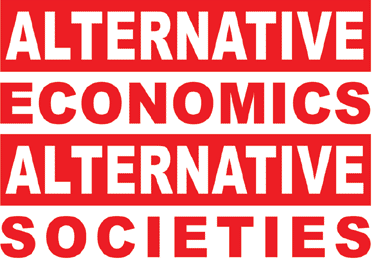 We have to create space for alternatives. Besides, capitalism cannot control everything. Otherwise there would never have been something like Podemos of Syriza’s victory.
We have to create space for alternatives. Besides, capitalism cannot control everything. Otherwise there would never have been something like Podemos of Syriza’s victory.
Podemos and Syriza also established that if you want to change something, you need to have power, be willing to step in the arena. Like the Zapatistas in Mexico.
Boaventura de Sousa: those are three very different cases, with very different strategies. When the Zapatistas stood up in 1994, they had the intention to change the state. Their goal was not to be satisfied with an autonomous region. The agreements of San Andrés, which took a lot of negotiation time, originally had the intention to change the constituency and the form of government. But that failed. Today, the Zapatistas still have a very international vision on ethics, culture and social transformation. But they have ceded all ties to traditional political parties.
Capitalism cannot control everything.
Podemos follows a very different strategy and looks for synergies with the Indignados movement, to move from protestas to propuestas, to tangible propositions. In Chili, the students who protested vigorously on the streets, have negotiated with president Bachelet. Some of them now belong to ministarial cabinets.
These are all very different strategies to participate in power. I don’t think the state should be left to powers on the right. A lot of people today feel sympathy towards anarchism and its love of horizontal structures. Young people all over Europe are following this belief, a long established belief in Europe furthermore.
We can also witness groups who are building a culture outside of the capitalistic society, with initiatives like local currencies and exchange systems. These groups leverage a different concept of society than the dominant one and it is the credibility of such initiatives I want to increase by placing them and analysing them.
Throught universities?
Boaventura de Sousa: Through the people’s university of social movements. It is an “Occupy” concept of our universities. We set up workshops outside the university space where we bring together intellectuals and academics with people from social movements. A third academics, two thirds social movements and no one gets more than three minutes talking time. That way we try to create new forms of education and new alliances. We need other sources of information apart from TV and internet; we have to listen to the neighbourhood, the countryside, listen to other voices and other cultures to understand how they perceive reality.
Ecuador and Bolivia have written the concept of “the good life” into their constitution, as an alternative for development. In reality, it doesn’t seem to work however.
Boaventura de Sousa: Yet the fact it is written in the constitution is not unimportant. When an idea becomes part of a social struggle, it stays in the minds of people, regardless of whether it actually gets realised or not. That is why many people still strongly believe in socialism. It has become part of the historical conscience.
There are plenty of alternatives in India, Asia, Latin America and Africa.
It is also very significant for a country like Ecuador to write a concept into the constitution which does not come from the Spanish language, but from indigenous culture. A concept that doesn’t assume you continuously have to grow what you have, but focusses on sufficiency and living well. Not the fetishism of the market, but the relation with nature and with the acknowledgment of Pachamama as a source of life. Such an idea is directly contradictive of the unlimited exploitation of natural resources, but pleads for respect of the vital cycles of nature. This idea of “the good life” puts us on the road toward a post-extraction model.
For you the choice is clear: either we invest in this new model, or we head straight towards a metropolitan war.
Boaventura de Sousa: If we do not build intercultural relations, steamroll over diversity and abuse our power to enforce our way of thinking, with a singular, neoliberal market orientated vision, then that will undeniably lead to war.
But there is another way, a way of alternatives. There are plenty of alternatives in India, Asia, Latin America and Africa. But you have to explain them, make them comprehensible, make them visible. The central idea is dignity. Through this concept, how can we deal with Islam, with the world view of indigenous people? These are not easy dialogues; you will have to speak in a different language and you will have to understand there is much you do not know. My job is to be an enlightened unknowing. And this is what I like: knowing that I do not know, knowing that my knowledge is incomplete.

Interview by Alma De Walsche. 29 june 2015
Sourcehttp://www.mo.be/node/44384




